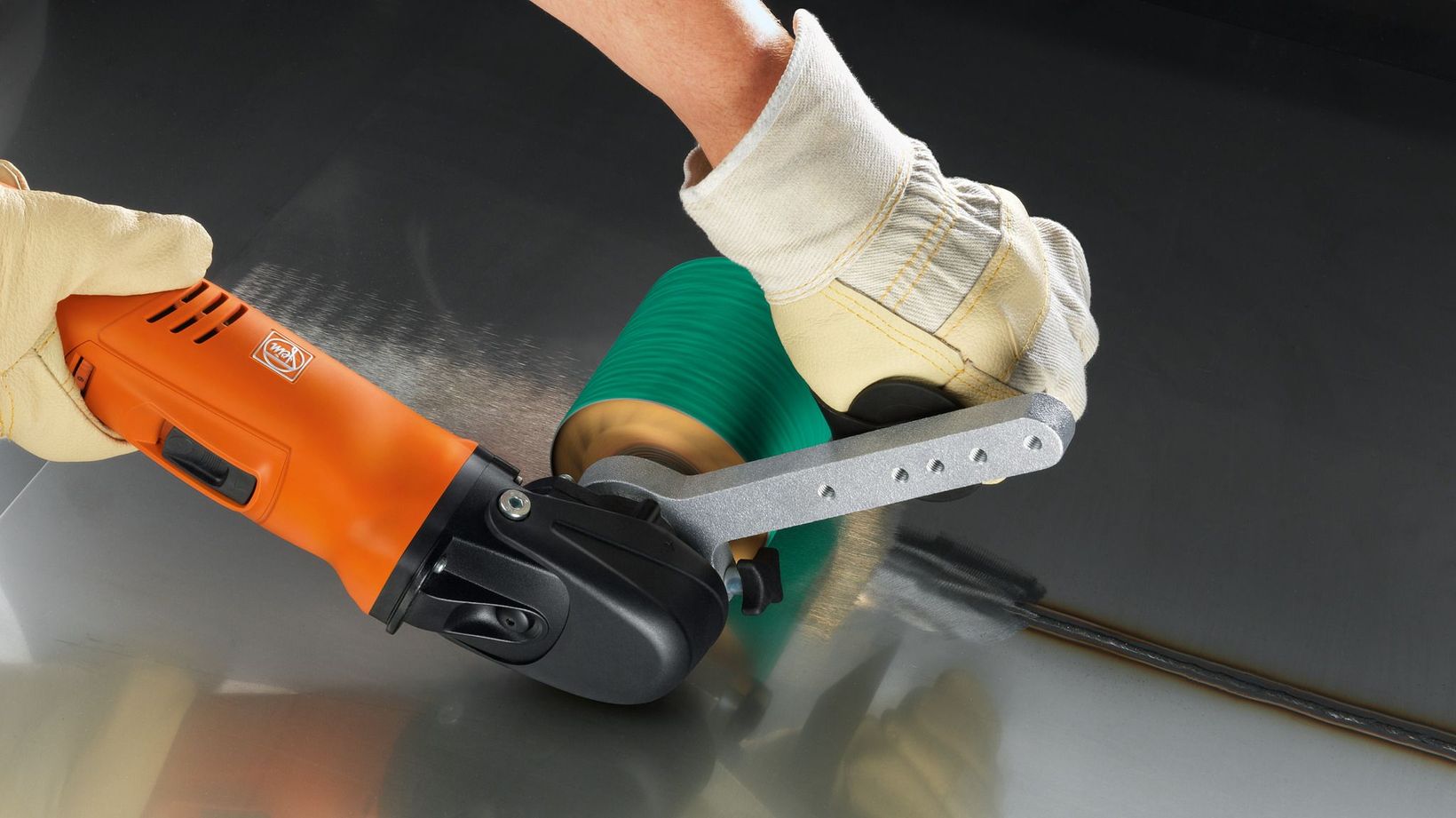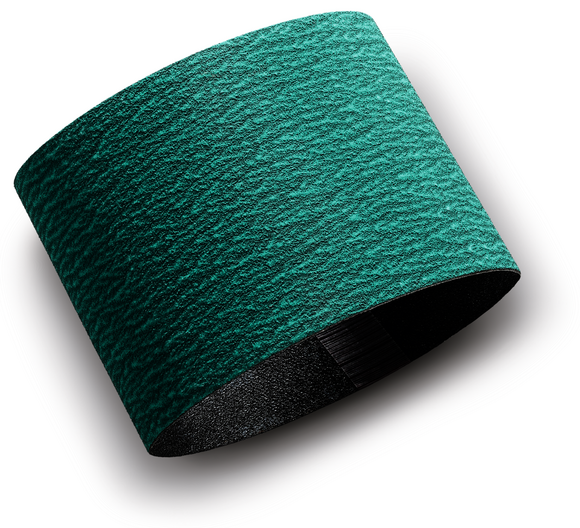Depending on the form of manufacture, thick-walled stainless steel plates have a glass-hard and rough surface. This so-called mill scale develops during hot rolling and its hardness complicates further machining of the surface. Thick-walled stainless steels are often used in the foodstuffs or pharmaceutical industries, where the individually determined roughness depths have to be very low for hygienic reasons. That’s because the rougher the surface is, the more impurities can form.
To prepare the surface of hot rolled stainless steel, the mill scale must be completely sanded off. It is particularly important that the hard layer is completely removed during the first work step. To do this, the sanding grit must “grip” underneath the mill scale. If it does not, there is a danger that the tip of the sanding grit becomes “rounded” or “inflated” – making material removal impossible. That’s why the stainless steel experts at FEIN recommend pre-sanding with a coarse object first. It is then possible to perfectly develop the sanding pattern in the next step.
Tip:
Long service lives and a relatively cool sand can be achieved when using sanding sleeves with zirconium corundum and active sanding coolants. The necessary sanding sleeves are included in the FEIN stainless steel set for sanding surfaces. Vulkollan foam expansion cylinders can be used to achieve a high contact pressure. This means that even at a low speed, the sanding sleeves can't slip. A speed of 2,500 rpm should not be exceeded to prevent the material overheating.

A sanding polisher and sanding sleeve made from zirconium corundum with active sanding material enable flush sanding of the mill scale.

